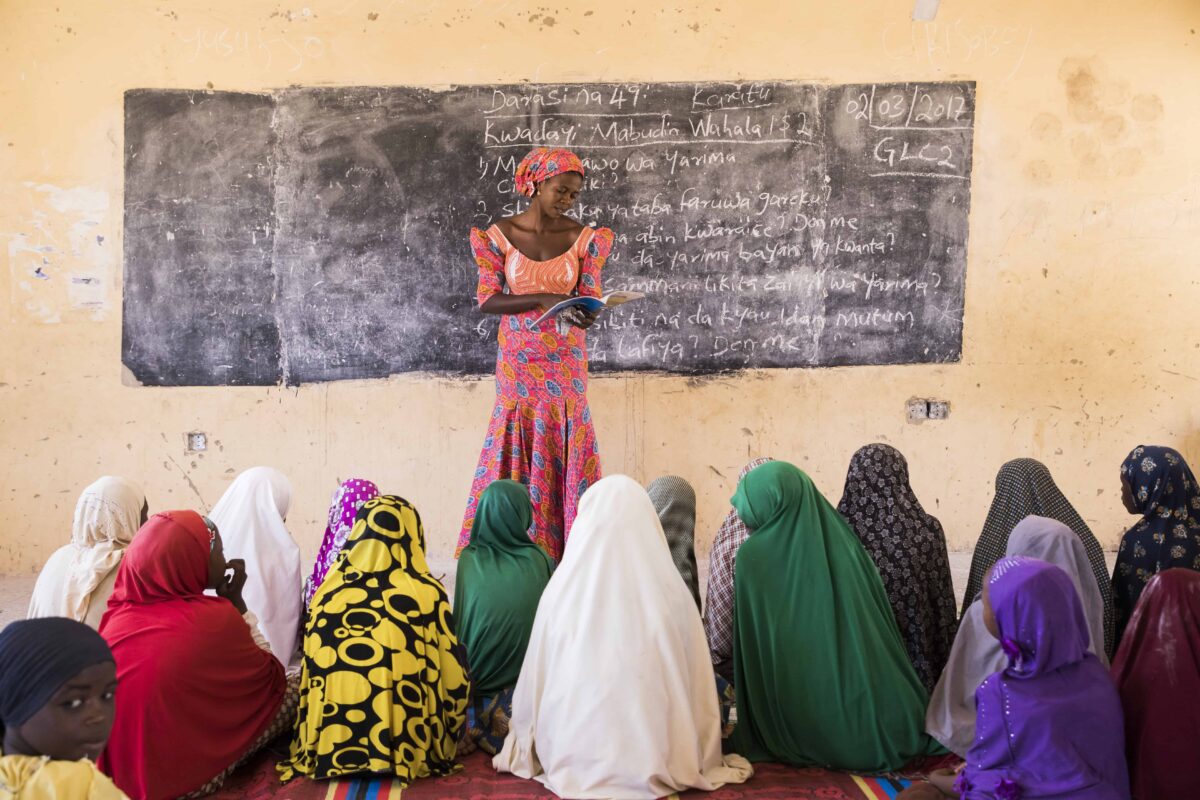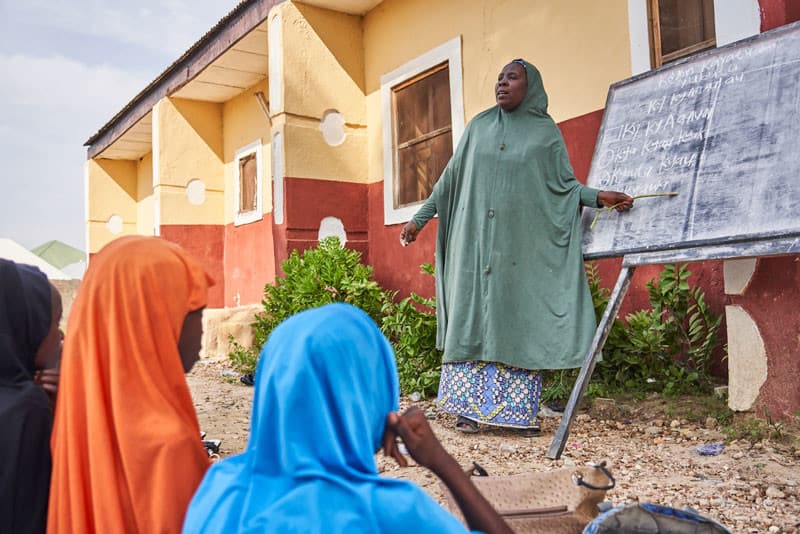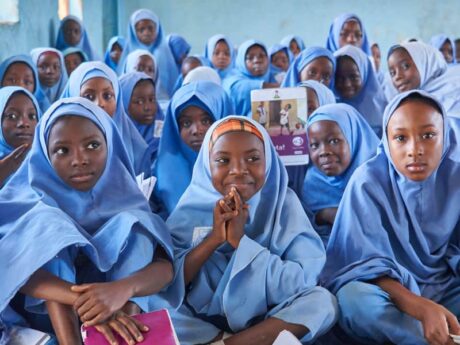Abuja, NigeriaA live radio program on Vision FM is about to wrap up when a listener calls the station to affirm that parents, whether literate or illiterate, can support their children to become better readers.
From Sokoto state in Nigeria, the caller is echoing the message of the five-minute drama skit he had just listened to on the Let’s Read! (Mu Karanta! in Hausa) radio program which focused on the importance of literacy and education.
“I want the children in our community to learn how to read,” says another listener calling into the live show on the radio station Globe FM in Bauchi state. “This program should reach my local government too.”
The live radio program airing on multiple stations provides opportunities for listeners to call the show to ask questions, provide comments on the drama or discussion segment. Literacy experts are on hand to address issues that need clarification.
Part of the USAID-funded Northern Education Initiative Plus project, the Let’s Read! radio programs are airing in Nigeria’s Sokoto and Bauchi states to encourage communities to create a culture of reading.
Implemented by Creative Associates International, the project is providing access to quality education and seeking to improve reading skills for more than two million school-aged children in formal and non-traditional schools.
Along with radio skits, the project is also reaching communities through mobile phones. While live programs, dramas and public service announcements are being aired on the radio, the project dispatches monthly voice messages on phones to targeted groups of literate and illiterate fathers, mothers, older siblings and community leaders to enlist their support for education.
The community members listen to the messages on their phones at night after the day’s activities and are able to opt out afterwards or refer the message to a friend or family member further promoting the campaigns.
Both radio and voice messages align with calendars for school and non-formal learning centers and focus on themes of enrollment, retention, transition and early grade reading.
Local messaging to mobilize community support
James Statman, Chief of Party for the Northern Education Initiative Plus project, says seeing through a local cultural lens is essential for the media campaign’s success.
“The project researched how best to sell education to parents in a way that they learn of its benefits–not just for their children but also themselves,” explains Statman.
“We learned that even though many people agreed that education was good, they had to learn of its benefits in very practical terms like how educated children could help them on a daily basis as farmers, artisans, herdsmen or housewives,” he says.
Statman says the campaigns were derived locally from the community and created through collaboration with religious leaders, school representatives, government partners, women leaders and an expert team versed in behavior change communications from the African Radio Drama Association.
Engaging stories that resonate with communities
The campaign’s popularity and success is due in part to the fact that community members can see themselves in the individuals they hear on the radio, explains Statman.
“We made sure we used characters that the communities of intervention could easily identify with like a butcher, a teacher with children, a community nurse or village head to speak about the benefits of education in a conversational and appealing manner,” he says.
One theme of the radio skit focuses on an illiterate mother who reaches out to another illiterate neighbor for help after her daughter persistently asks her to help with her homework.
The illiterate neighbor explains to the mother that she may not know how to read or write but there are a number of ways she could help her daughter read better. She tells her she could make the home conducive for reading, suggests asking her child about her day at school, encouraging the child to read to her aloud and teaching her cultural songs.
The mother teaches the other mother a song which they sing together and she leaves feeling more empowered to meet her daughter’s educational needs.
Reaching a wider audience
The live shows on radio are anchored by widely recognized presenters within the two Nigerian states and are promoted on the stations before airing so listeners can anticipate the program’s main topic for the day.
Zainab Gwani, a teacher from Darazo local government in Bauchi state is appearing as a guest on the program. This is her first time speaking on radio.
Gwani says children in school are getting all the support to learn to read with the Mu Karanta! early grade reading curriculum but it needs to be complemented with parental support.
“The radio program is a very good platform to reach parents to tell them why it is important to be more involved in their children’s schooling,” she says. “We would like to see them monitor teaching and learning in school, help them with their homework and get them ready for school.”
“I share this every day in school but now I can emphasize this message to thousands more,” says Gwani.



